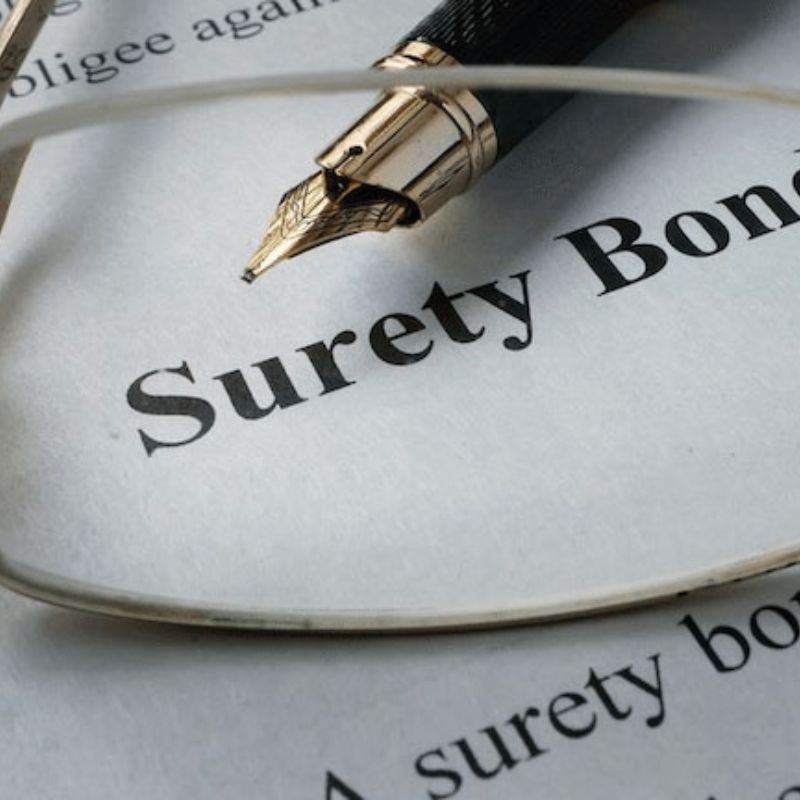Menu
We’re here for you 24/7
5.0
Out of 91 reviews
Home | Criminal laws | Bail Applications


Suppose you’re applying for bail in the local courts. Do you think your bail should be granted? Are you ready to attend court and obtain legal advice for a criminal offence? In that case, if you’ve committed a serious crime as an accused person and you’re worried your bail will be refused, you need to contact us! We’re the bail application lawyers Sydney residents look to!
We are available by phone 24/7. When you’re struggling with obtaining bail or need representation at the police station you are being held at, we’re there for you to handle your indictable offences and criminal convictions.




The court assesses bail. This bail assessment would entail assessing any bail concerns, meaning ensuring the person is unlikely to re-offend while out on bail.
In New South Wales, receiving bail is not always contingent on a “show cause” application. While certain people and offences may trigger the need to show cause, most bail applications are about assessing whether there is an unacceptable risk in releasing someone.
Our skilled bail application lawyers in Sydney will work to demonstrate to the court that you do not pose a risk to the community or is unlikely to flee, which can help secure release on bail.
Our bail application lawyer will have to answer four essential questions about bail —
Getting arrested is the first step in a lengthy legal process from accusation to verdict. An essential part of many cases is to handle the bail process as soon as possible. The Bail Act of 1992 allows for bail to be posted for any person not already imprisoned or indicted for another crime. However, without guidance, an accused party could be unaware of their rights to bail.
The police generally set bail within 48 hours of arrest. However, suppose bail is not granted to an accused person. In that case, they may need experienced bail application lawyers to schedule a free consultation anytime about their case. Our bail lawyers will not only help with the application but also will aid in setting and changing bail conditions and addressing bail breaches.


Related Services
Sydney-Wide Criminal Lawyers
Trusted criminal defence services across Sydney, from the CBD to Liverpool, we provide professional legal support when you need it most.


We’re The Best At Getting Bail Applications Approved – So You Can Get Back To Your Life
In Australia, courts only refuse around 9% of adults and 6.2% of juveniles who apply for bail. Our expertise and experience uphold that percentage well by giving applicants the best information and aid we can.
You can count on James & Jaramillo Lawyers as your bail authority: we’re the bail application lawyers Sydney residents look to. No matter the crime, our experienced Sydney bail lawyers will give any case all their effort. Plus, since we know that bail is not your case’s end, we are always available to help with bail condition changes. Alongside new bail applicants, returning bail applicants can also have their cases looked at for free at any time.
Once these criteria are established for the court, our criminal lawyers will determine the bail condition for your police bail. The bail conditions are the stipulations that a defendant who receives bail must adhere to remain out on bond.
These conditions manage people out on bail by placing restrictions on their movement and keeping tabs on them. Requirements like checking in with a required office, regular random drug screenings, surrendering your passport, and staying away from certain people and places are all part of conduct requirement conditions.
It should be noted that bail conditions are not universal and may differ based on the circumstances of your case. Our experienced bail lawyers can guide you through the bail application process and help you understand what conditions may apply to you based on the specifics of your situation.
These protocols involve insurance that a person out on bail will return to court. Agreeing to pay a fine if court dates get missed or surrendering property as collateral for not returning to court ensures that people on bail will still be accountable for their actions.
Usually made by a person without a criminal record who knows the defendant well, these acknowledgments involve having someone sign a written agreement vouching that the defendant will not miss court dates. The court will determine if the elected person is a good candidate for an acknowledgment.
Enforcement conditions are usually added as an extra layer of protection to ensure another bail condition will be upheld. Some examples require those who bailed out always to answer the door when the police come after curfew to verify that they are still at the residence.
Just like the crimes they prosecute, the process for filing bail applications in courts differs depending on the court district you are going through. For Supreme Court bail applications, a defendant has two attempts to get approved, whereas, for Supreme Court bail applications, there is only one opportunity.
For severe crimes like assault and misdemeanours like domestic violence, those who were denied bail by the police can contact our offices to look at their case.
Following consultation, clients will know right away if they will be represented. A bail application lawyer then submits a bail application based on the information provided and sends it to the court for review. If the application is approved, the client will acknowledge that they agree with it with a signature.


If your bail application is denied, other options may still be available. For example, you can make a new application to the Local Court if new circumstances arise that may be relevant to the bail decision. Additionally, you can apply for bail in the Supreme Court of NSW.
Suppose your bail application gets denied in local or district court. An entirely new bail application can be filed to the Supreme Court of NSW. Supreme Court bail applications are the most formal of the three and require submission of a formal application. Supreme Court bail applications can free those imprisoned and have free reign for what to hear.
If accepted, the bail application lawyer in Sydney will have a chance to advise of any changes or updates before the court hears the case. Upon hearing the case on a limited basis, the court will deliberate and decide on the bail application.
If you are struggling to find a bail application lawyer in Sydney to take on your case, we are open 24/7 and are always here to help.



For a woman, it is very difficult to deal with harassment, stalking and intimidation. Last year, I have applied for APVO against my neighbour.
Although I had CCTV footages and other evidence, to actually go through the whole court process is stressful, especially because I decided to represent myself in the court. Once I stepped into the legal process the realization hit me that having evidence may not be enough to win and protect myself from the defendant. When you represent yourself, the defendant’s solicitor sees that as an easy winning for his client and uses intimidation tactics.
I have contacted several solicitors but was put off by their emotionlessness approach. I contacted Jonathan Jaramillo from James and Jaramillo Lawyers who offered free first consultation. Comprehensive information offered by Jonathan was very impressive. He listened attentively and took time to answer my questions. He did not tell me what I wanted to hear, but what I needed to hear. I decided to represent myself and asked Jonathan if he would guide me and advise me throughout the process. This would be more cost-effective for me. Regardless of the size of the case, Jonathan was from the beginning to the end extremely professional, prompt and kind. He explained everything clearly making me feel confident with the legal process.
I have managed to get Interim Order in the early stage of the process-mention, which was protecting me till the final hearing in March 2024 when I won the case. This outcome could not have been achieved without working with Jonathan and his professional guidance. I can’t speak highly enough about Jonathan Jaramillo and recommend him for anyone who is looking for a good, responsive and reliable solicitor, and a genuine person.
 Maninder Kaur2023-03-30Just wanted to say we were so blessed that we chose James and Jaramillo Lawyers , couldn’t have asked for lawyers better than than . The situation and mess that we were in earlier these lawyers stepped in and took the stress of our shoulders. He took time to understand our circumstances and was always available to ease our minds and take pressure of our minds . We know we could count on him anytime. Thank you so much . Really appreciate all that you did .
Maninder Kaur2023-03-30Just wanted to say we were so blessed that we chose James and Jaramillo Lawyers , couldn’t have asked for lawyers better than than . The situation and mess that we were in earlier these lawyers stepped in and took the stress of our shoulders. He took time to understand our circumstances and was always available to ease our minds and take pressure of our minds . We know we could count on him anytime. Thank you so much . Really appreciate all that you did . Martin Glascoe2023-03-28Very positive experience with J&J today. Despite late engagement, Jonathan was able to make the necessary time to assist, providing a detailed list of supporting artefacts I needed to support my case, even taking a call at 8pm! The case plan was fully explained and I felt confident the best result would be achieved. Thanks J&J team!
Martin Glascoe2023-03-28Very positive experience with J&J today. Despite late engagement, Jonathan was able to make the necessary time to assist, providing a detailed list of supporting artefacts I needed to support my case, even taking a call at 8pm! The case plan was fully explained and I felt confident the best result would be achieved. Thanks J&J team! Jennifer Vargas2023-03-23Thank you to Jonathan and Jamie for your support. I highly recommend J&J Lawyers as they are professional and effective. What a great outcome in my case... Gracias Jonathan!
Jennifer Vargas2023-03-23Thank you to Jonathan and Jamie for your support. I highly recommend J&J Lawyers as they are professional and effective. What a great outcome in my case... Gracias Jonathan! Michael Metherell2023-03-17Jonathan and his team are very good at what they do. I was dealing with Jonathan and his assistant Jamie, they were both extremely helpful and supportive with helping me prepare for my court case. Jonathan holds himself very professionally in court and is a confident lawyer. Considering my circumstances where not great and had a hard case, Jonathan handled it well and in result of this it all went in my favour. I highly recommend him and his team. Thank you Jonathan, I'm very greatfull to have found you.
Michael Metherell2023-03-17Jonathan and his team are very good at what they do. I was dealing with Jonathan and his assistant Jamie, they were both extremely helpful and supportive with helping me prepare for my court case. Jonathan holds himself very professionally in court and is a confident lawyer. Considering my circumstances where not great and had a hard case, Jonathan handled it well and in result of this it all went in my favour. I highly recommend him and his team. Thank you Jonathan, I'm very greatfull to have found you. Gail2023-03-15Best lawyers ever very thorough has your best interests at heart I wouldn't go
Gail2023-03-15Best lawyers ever very thorough has your best interests at heart I wouldn't go Sidney C2023-03-08Positive experience & positive outcome - After being in contact with multiple different law firms, I found Jonathan was the right lawyer for us. He was very responsive (even outside working hours) and was able to provide us with one on one service. He took the time to understand our personal circumstances and was always available to ease our minds by providing clear and honest advice. Jonathan shows great confidence in his work which allowed us to place our trust in him for representation. During a highly stressful period, Jonathan definitely made the court process just that little bit easier. Your time and dedication to your work does not go unnoticed - thank you Jonathan!
Sidney C2023-03-08Positive experience & positive outcome - After being in contact with multiple different law firms, I found Jonathan was the right lawyer for us. He was very responsive (even outside working hours) and was able to provide us with one on one service. He took the time to understand our personal circumstances and was always available to ease our minds by providing clear and honest advice. Jonathan shows great confidence in his work which allowed us to place our trust in him for representation. During a highly stressful period, Jonathan definitely made the court process just that little bit easier. Your time and dedication to your work does not go unnoticed - thank you Jonathan! Jye Doyle2023-03-02I’d like to highly recommend Tom Seeney from James & Jaramillo Lawyers. Tom took me on as a client after I was struggling with a lawyer from another firm that took no care in my case. Tom has represented me in multiple cases now and has never failed to impress me with his professionalism and attention to detail, saving me from serious legal implications more times than I could’ve imagined. 5 stars, would not look past him.
Jye Doyle2023-03-02I’d like to highly recommend Tom Seeney from James & Jaramillo Lawyers. Tom took me on as a client after I was struggling with a lawyer from another firm that took no care in my case. Tom has represented me in multiple cases now and has never failed to impress me with his professionalism and attention to detail, saving me from serious legal implications more times than I could’ve imagined. 5 stars, would not look past him. Angela Doyle2023-03-02I would like to highly recommend Tom Seeney. Mr Seeney took over my case at fairly short notice after my previous lawyer proved to be unsatisfactory. Tom was thorough, extremely knowledgeable about the law and professional in his demeanour at all times. I am so grateful that he took on my case as we got an outstanding outcome. Would highly recommend him. Big thank you from Jye, Liz and Anj.
Angela Doyle2023-03-02I would like to highly recommend Tom Seeney. Mr Seeney took over my case at fairly short notice after my previous lawyer proved to be unsatisfactory. Tom was thorough, extremely knowledgeable about the law and professional in his demeanour at all times. I am so grateful that he took on my case as we got an outstanding outcome. Would highly recommend him. Big thank you from Jye, Liz and Anj. RIEG Wang2023-03-01I am so so grateful to find Tom to help my divorce case After almost one year with a really aweful law firm,which cost me a lot of money and put me in a very difficult position,i want to say big thank you to Tom,you are a great lawyer,but more importantly, a decent human To those who are stucking in a divorce case, i hope you can find a good lawyer like Tom and end the case soon!
RIEG Wang2023-03-01I am so so grateful to find Tom to help my divorce case After almost one year with a really aweful law firm,which cost me a lot of money and put me in a very difficult position,i want to say big thank you to Tom,you are a great lawyer,but more importantly, a decent human To those who are stucking in a divorce case, i hope you can find a good lawyer like Tom and end the case soon! Mohammad Islam2023-02-26Very much professional and organised. I am really happy with the service they provided. Definitely recommend others to give them a call and book an appointment to see the difference.
Mohammad Islam2023-02-26Very much professional and organised. I am really happy with the service they provided. Definitely recommend others to give them a call and book an appointment to see the difference.
 Maninder Kaur2023-03-30Just wanted to say we were so blessed that we chose James and Jaramillo Lawyers , couldn’t have asked for lawyers better than than . The situation and mess that we were in earlier these lawyers stepped in and took the stress of our shoulders. He took time to understand our circumstances and was always available to ease our minds and take pressure of our minds . We know we could count on him anytime. Thank you so much . Really appreciate all that you did .
Maninder Kaur2023-03-30Just wanted to say we were so blessed that we chose James and Jaramillo Lawyers , couldn’t have asked for lawyers better than than . The situation and mess that we were in earlier these lawyers stepped in and took the stress of our shoulders. He took time to understand our circumstances and was always available to ease our minds and take pressure of our minds . We know we could count on him anytime. Thank you so much . Really appreciate all that you did . Martin Glascoe2023-03-28Very positive experience with J&J today. Despite late engagement, Jonathan was able to make the necessary time to assist, providing a detailed list of supporting artefacts I needed to support my case, even taking a call at 8pm! The case plan was fully explained and I felt confident the best result would be achieved. Thanks J&J team!
Martin Glascoe2023-03-28Very positive experience with J&J today. Despite late engagement, Jonathan was able to make the necessary time to assist, providing a detailed list of supporting artefacts I needed to support my case, even taking a call at 8pm! The case plan was fully explained and I felt confident the best result would be achieved. Thanks J&J team! Jennifer Vargas2023-03-23Thank you to Jonathan and Jamie for your support. I highly recommend J&J Lawyers as they are professional and effective. What a great outcome in my case... Gracias Jonathan!
Jennifer Vargas2023-03-23Thank you to Jonathan and Jamie for your support. I highly recommend J&J Lawyers as they are professional and effective. What a great outcome in my case... Gracias Jonathan! Michael Metherell2023-03-17Jonathan and his team are very good at what they do. I was dealing with Jonathan and his assistant Jamie, they were both extremely helpful and supportive with helping me prepare for my court case. Jonathan holds himself very professionally in court and is a confident lawyer. Considering my circumstances where not great and had a hard case, Jonathan handled it well and in result of this it all went in my favour. I highly recommend him and his team. Thank you Jonathan, I'm very greatfull to have found you.
Michael Metherell2023-03-17Jonathan and his team are very good at what they do. I was dealing with Jonathan and his assistant Jamie, they were both extremely helpful and supportive with helping me prepare for my court case. Jonathan holds himself very professionally in court and is a confident lawyer. Considering my circumstances where not great and had a hard case, Jonathan handled it well and in result of this it all went in my favour. I highly recommend him and his team. Thank you Jonathan, I'm very greatfull to have found you. Gail2023-03-15Best lawyers ever very thorough has your best interests at heart I wouldn't go
Gail2023-03-15Best lawyers ever very thorough has your best interests at heart I wouldn't go Sidney C2023-03-08Positive experience & positive outcome - After being in contact with multiple different law firms, I found Jonathan was the right lawyer for us. He was very responsive (even outside working hours) and was able to provide us with one on one service. He took the time to understand our personal circumstances and was always available to ease our minds by providing clear and honest advice. Jonathan shows great confidence in his work which allowed us to place our trust in him for representation. During a highly stressful period, Jonathan definitely made the court process just that little bit easier. Your time and dedication to your work does not go unnoticed - thank you Jonathan!
Sidney C2023-03-08Positive experience & positive outcome - After being in contact with multiple different law firms, I found Jonathan was the right lawyer for us. He was very responsive (even outside working hours) and was able to provide us with one on one service. He took the time to understand our personal circumstances and was always available to ease our minds by providing clear and honest advice. Jonathan shows great confidence in his work which allowed us to place our trust in him for representation. During a highly stressful period, Jonathan definitely made the court process just that little bit easier. Your time and dedication to your work does not go unnoticed - thank you Jonathan! Jye Doyle2023-03-02I’d like to highly recommend Tom Seeney from James & Jaramillo Lawyers. Tom took me on as a client after I was struggling with a lawyer from another firm that took no care in my case. Tom has represented me in multiple cases now and has never failed to impress me with his professionalism and attention to detail, saving me from serious legal implications more times than I could’ve imagined. 5 stars, would not look past him.
Jye Doyle2023-03-02I’d like to highly recommend Tom Seeney from James & Jaramillo Lawyers. Tom took me on as a client after I was struggling with a lawyer from another firm that took no care in my case. Tom has represented me in multiple cases now and has never failed to impress me with his professionalism and attention to detail, saving me from serious legal implications more times than I could’ve imagined. 5 stars, would not look past him. Angela Doyle2023-03-02I would like to highly recommend Tom Seeney. Mr Seeney took over my case at fairly short notice after my previous lawyer proved to be unsatisfactory. Tom was thorough, extremely knowledgeable about the law and professional in his demeanour at all times. I am so grateful that he took on my case as we got an outstanding outcome. Would highly recommend him. Big thank you from Jye, Liz and Anj.
Angela Doyle2023-03-02I would like to highly recommend Tom Seeney. Mr Seeney took over my case at fairly short notice after my previous lawyer proved to be unsatisfactory. Tom was thorough, extremely knowledgeable about the law and professional in his demeanour at all times. I am so grateful that he took on my case as we got an outstanding outcome. Would highly recommend him. Big thank you from Jye, Liz and Anj. RIEG Wang2023-03-01I am so so grateful to find Tom to help my divorce case After almost one year with a really aweful law firm,which cost me a lot of money and put me in a very difficult position,i want to say big thank you to Tom,you are a great lawyer,but more importantly, a decent human To those who are stucking in a divorce case, i hope you can find a good lawyer like Tom and end the case soon!
RIEG Wang2023-03-01I am so so grateful to find Tom to help my divorce case After almost one year with a really aweful law firm,which cost me a lot of money and put me in a very difficult position,i want to say big thank you to Tom,you are a great lawyer,but more importantly, a decent human To those who are stucking in a divorce case, i hope you can find a good lawyer like Tom and end the case soon! Mohammad Islam2023-02-26Very much professional and organised. I am really happy with the service they provided. Definitely recommend others to give them a call and book an appointment to see the difference.
Mohammad Islam2023-02-26Very much professional and organised. I am really happy with the service they provided. Definitely recommend others to give them a call and book an appointment to see the difference.


Our Sydney criminal lawyers can accommodate all your legal needs by providing Criminal, Family, & Traffic Law services. We fight to ensure our clients receive the justice they deserve through transparency, grit, empathy, and reliability.
Contact us today if you require a free legal consultation from Sydney bail lawyers. We’re the bail application lawyers Sydney residents need! (02) 8378 8585
Section 7 of Bail Act 2013 defines bail as an authority to be at liberty for an offence.
Yes, bail can be granted under the Bail Act to any person accused of an offence. If they are in custody already, they will be entitled to release from custody once the bail acknowledgement is signed and the bail conditions are met.
Yes, once the charge process is finalised by the custody sergeant, they can make a determination if police will give you bail. If the custody sergeant believes you should get police bail, you will need to sign the bail acknowledgement.
If the custody sergeant bail refuses bail, you have the option to apply for bail in the Local Court. This could either occur on the same day or the next day. The rule of thumb is that you will appear at the Local Court as soon as practically possible.
If you choose to do a bail (release) application at the Local Court, the Magistrate that is presiding will determine if you should be released on bail.
The Court first must determine if the matter falls under the show cause provisions of the Bail Act.
In the event, your matter is not a “show cause” matter than the Court considers whether you are an unacceptable risk to the community.
The Court consider section 17 of the Bail Act in deciding if there may be a bail concern if you are released from custody:
ASSESSMENT OF BAIL CONCERNS
(1) A bail authority must, before making a bail decision, assess any bail concerns.
(2) For the purposes of this Act, a “bail concern” is a concern that an accused person, if released from custody, will–
(a) fail to appear at any proceedings for the offence, or
(b) commit a serious offence, or
(c) endanger the safety of victims, individuals or the community, or
(d) interfere with witnesses or evidence”.
Further the Court than considers relevant matters as part of the assessment under section 18 of the Bail Act:
MATTERS TO BE CONSIDERED AS PART OF ASSESSMENT
(1) A bail authority is to consider the following matters, and only the following matters, in an assessment of bail concerns under this Division–
(a) the accused person’s background, including criminal history, circumstances and community ties,
(b) the nature and seriousness of the offence,
(c) the strength of the prosecution case,
(d) whether the accused person has a history of violence,
(e) whether the accused person has previously committed a serious offence while on bail (whether granted under this Act or a law of another jurisdiction),
(f) whether the accused person has a history of compliance or non-compliance with any of the following–
(i) bail acknowledgments,
(ii) bail conditions,
(iii) apprehended violence orders,
(iv) parole orders,
(v) home detention orders, good behaviour bonds or community service orders,
(vi) intensive correction orders,
(vii) community correction orders,
(viii) conditional release orders,
(ix) non-association and place restriction orders,
(x) supervision orders,
(f1) if the bail authority is making the assessment of bail concerns because the accused person has failed or was about to fail to comply with a bail acknowledgment or a bail condition, any warnings issued to the accused person by police officers or bail authorities regarding non-compliance with bail acknowledgments or bail conditions,
(g) whether the accused person has any criminal associations,
(h) the length of time the accused person is likely to spend in custody if bail is refused,
(i) the likelihood of a custodial sentence being imposed if the accused person is convicted of the offence,
(i1) if the accused person has been convicted of the offence, but not yet sentenced, the likelihood of a custodial sentence being imposed,
(j) if the accused person has been convicted of the offence and proceedings on an appeal against conviction or sentence are pending before a court, whether the appeal has a reasonably arguable prospect of success,
(k) any special vulnerability or needs the accused person has including because of youth, being an Aboriginal or Torres Strait Islander, or having a cognitive or mental health impairment,
(l) the need for the accused person to be free to prepare for his or her appearance in court or to obtain legal advice,
(m) the need for the accused person to be free for any other lawful reason,
(n) the conduct of the accused person towards any victim of the offence, or any family member of a victim, after the offence,
(o) in the case of a serious offence, the views of any victim of the offence or any family member of a victim (if available to the bail authority), to the extent relevant to a concern that the accused person could, if released from custody, endanger the safety of victims, individuals or the community,
(p) the bail conditions that could reasonably be imposed to address any bail concerns in accordance with section 20A,
(q) whether the accused person has any associations with a terrorist organisation (within the meaning of Division 102 of Part 5.3 of the Commonwealth Criminal Code),
(r) whether the accused person has made statements or carried out activities advocating support for terrorist acts or violent extremism,
(s) whether the accused person has any associations or affiliation with any persons or groups advocating support for terrorist acts or violent extremism.
(2) The following matters (to the extent relevant) are to be considered in deciding whether an offence is a serious offence under this Division (or the seriousness of an offence), but do not limit the matters that can be considered–
(a) whether the offence is of a sexual or violent nature or involves the possession or use of an offensive weapon or instrument within the meaning of the Crimes Act 1900 ,
(b) the likely effect of the offence on any victim and on the community generally,
(c) the number of offences likely to be committed or for which the person has been granted bail or released on parole”.
Lastly, if the court does find the accused person to be an unacceptable risk because if the accused person is released from custody they will either:
(a) fail to appear at any proceedings for the offence, or
(b) commit a serious offence, or
(c) endanger the safety of victims, individuals or the community, or
(d) interfere with witnesses or evidence.
Then the accused person won’t be granted bail. However, if they are of the view that it’s a bail concern then it can be mitigated by bail conditions, then the accused person can be released on bail after signing the bail acknowledgement.
After the Lindt Café Siege, the Bail Act was reformed to include new provisions relating to show cause.
Section 16A of the Bail Act was introduced that states a bail authority making a bail decision for a show cause offence must refuse bail unless the accused person shows cause why his or her detention is not justified.
If the accused person does show cause then the bail authority (the Court) must make a bail decision on the unacceptable risk test.
What triggers a show cause bail application?
Section 16B of the Bail Act provides offences to which the show cause requirement applies:
For the purposes of this Act, each of the following offences is a
“show cause offence” —
(a) an offence that is punishable by imprisonment for life,
(b) a serious indictable offence that involves–
(i) sexual intercourse with a person under the age of 16 years by a person who is of or above the age of 18 years, or
(ii) the infliction of actual bodily harm with intent to have sexual intercourse with a person under the age of 16 years by a person who is of or above the age of 18 years,
(c) a serious personal violence offence, or an offence involving wounding or the infliction of grievous bodily harm, if the accused person has previously been convicted of a serious personal violence offence,
(d) any of the following offences–
(i) a serious indictable offence under Part 3 or 3A of the Crimes Act 1900 or under the Firearms Act 1996 that involves the use of a firearm,
(ii) an indictable offence that involves the unlawful possession of a pistol or prohibited firearm in a public place,
(iii) a serious indictable offence under the Firearms Act 1996 that involves acquiring, supplying, manufacturing or giving possession of a pistol or prohibited firearm or a firearm part that relates solely to a prohibited firearm,
(e) any of the following offences–
(i) a serious indictable offence under Part 3 or 3A of the Crimes Act 1900 or under the Weapons Prohibition Act 1998 that involves the use of a military-style weapon,
(ii) an indictable offence that involves the unlawful possession of a military-style weapon,
(iii) a serious indictable offence under the Weapons Prohibition Act 1998 that involves buying, selling or manufacturing a military-style weapon or selling, on 3 or more separate occasions, any prohibited weapon,
(f) an offence under the Drug Misuse and Trafficking Act 1985 that involves the cultivation, supply, possession, manufacture or production of a commercial quantity of a prohibited drug or prohibited plant within the meaning of that Act,
(g) an offence under Part 9.1 of the Commonwealth Criminal Code that involves the possession, trafficking, cultivation, sale, manufacture, importation, exportation or supply of a commercial quantity of a serious drug within the meaning of that Code,
(h) a serious indictable offence that is committed by an accused person–
(i) while on bail (whether granted under this Act or a law of another jurisdiction), or
(ii) while on parole (whether granted under a law of this State or another jurisdiction),
(i) an indictable offence, or an offence of failing to comply with a supervision order, committed by an accused person while subject to a supervision order,
(j) a serious indictable offence of attempting to commit an offence mentioned elsewhere in this section,
(k) a serious indictable offence (however described) of assisting, aiding, abetting, counselling, procuring, soliciting, being an accessory to, encouraging, inciting or conspiring to commit an offence mentioned elsewhere in this section,
(l) a serious indictable offence that is committed by an accused person while the person is the subject of a warrant authorising the arrest of the person issued under–
(i) this Act, or
(ii) Part 7 of the Crimes (Administration of Sentences) Act 1999 , or
(iii) the Criminal Procedure Act 1986 , or
(iv) the Crimes (Sentencing Procedure) Act 1999 .
It really depends on what the breach is.
For example, if you fail to appear in Court, you may be criminally charged with failing to appear under section 79 of the Bail Act in which the maximum penalty for t he offence are 3 years imprisonment or $3,300.00 fine or both.
If it’s a different type of breach, like reporting late to the police station. Police may give you a warning and take no account. Alternatively, if they decide to take action, they can put a detention application to the Court and the bail hearing is heard again.
Yes, you can vary any bail condition. However, simple variations are generally accepted by the Court if the prosecution consents with the variation. Note, that even if all parties consent to the variation, it is still ultimately up to the Court.
If the prosecution contests the bail variation then the Court has a disputed bail variation hearing and determines if it is acceptable to change the conditions.

Related Blogs
Our vision is to ensure everyone, regardless of their background, has their voice heard in Court. We do not tell our clients what they want to hear but what they need to hear. We pride ourselves on our responsive, honest, and professional representation. We will be your trusted advisors from the start until the end of your matter.
bettercalljohn tjslawyer
Made by Digital Recipe